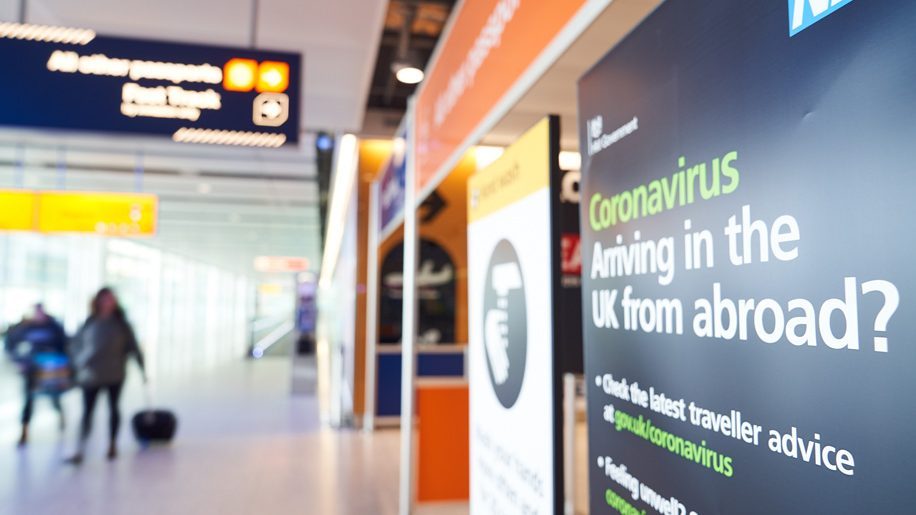
Travellers arriving into the UK from high-risk destinations will see their enforced self-isolation period reduced from 14 days to ten days from next week.
The change takes effect in England, Scotland and Northern Ireland from 0001 on Monday December 14, and applies both to contacts of people with confirmed coronavirus within the UK, and arrivals from destinations not on the travel corridor list.
NHS Test and Trace service will take into account the change from Monday, and passenger locator forms will also be updated from then.
But “Due to the time taken to test technical changes and release updates through the app store”, the NHS Covid-19 app will not update until Thursday December 17.
This means that in England, anyone receiving a notification from the app before December 17 to isolate because they have been in contact with someone who has tested positive, can leave isolation when the countdown timer says three days.
This applies provided they have not also been contacted by NHS Test and Trace (in which case they should follow isolation guidance provided by contact tracers).
A joint statement from the UK’s four Chief Medical Officers said:
“Self-isolation is essential to reducing the spread of COVID as it breaks the chains of transmission. After reviewing the evidence, we are now confident that we can reduce the number of days that contacts self-isolate from 14 days to ten days.
“People who return from countries which are not on the travel corridor list should also self-isolate for ten days instead of 14 days.
“People who test positive should continue to self-isolate for ten days from onset of symptoms or ten days from point of taking a positive test if asymptomatic.
“We urge everyone to self-isolate when appropriate, it will save lives.”
Commenting on the news Karen Dee, chief executive of the Airport Operators Association, said:
“The reduction in the quarantine period along with the imminent start of the test-to-release system in England are welcome steps forward that can help boost the safe restart of international travel, increase consumer confidence and begin to pave the way towards an open Global Britain.
“However, aviation will only fully recover when the need for quarantine is eliminated on a four-nation basis. UK airports are committed to working with the UK and devolved governments to ensure that pre-departure and rapid testing can be brought in a soon as possible to remove the quarantine altogether.
“Aviation is essential to our economic recovery as well as wider agendas such as Global Britain, levelling-up and inclusive, sustainable growth. However, UK airports have been amongst the hardest-hit sectors by the pandemic. That means the UK and devolved governments must continue to work with our airports to provide the necessary financial support to safeguard the future of aviation and thus UK prosperity.”












